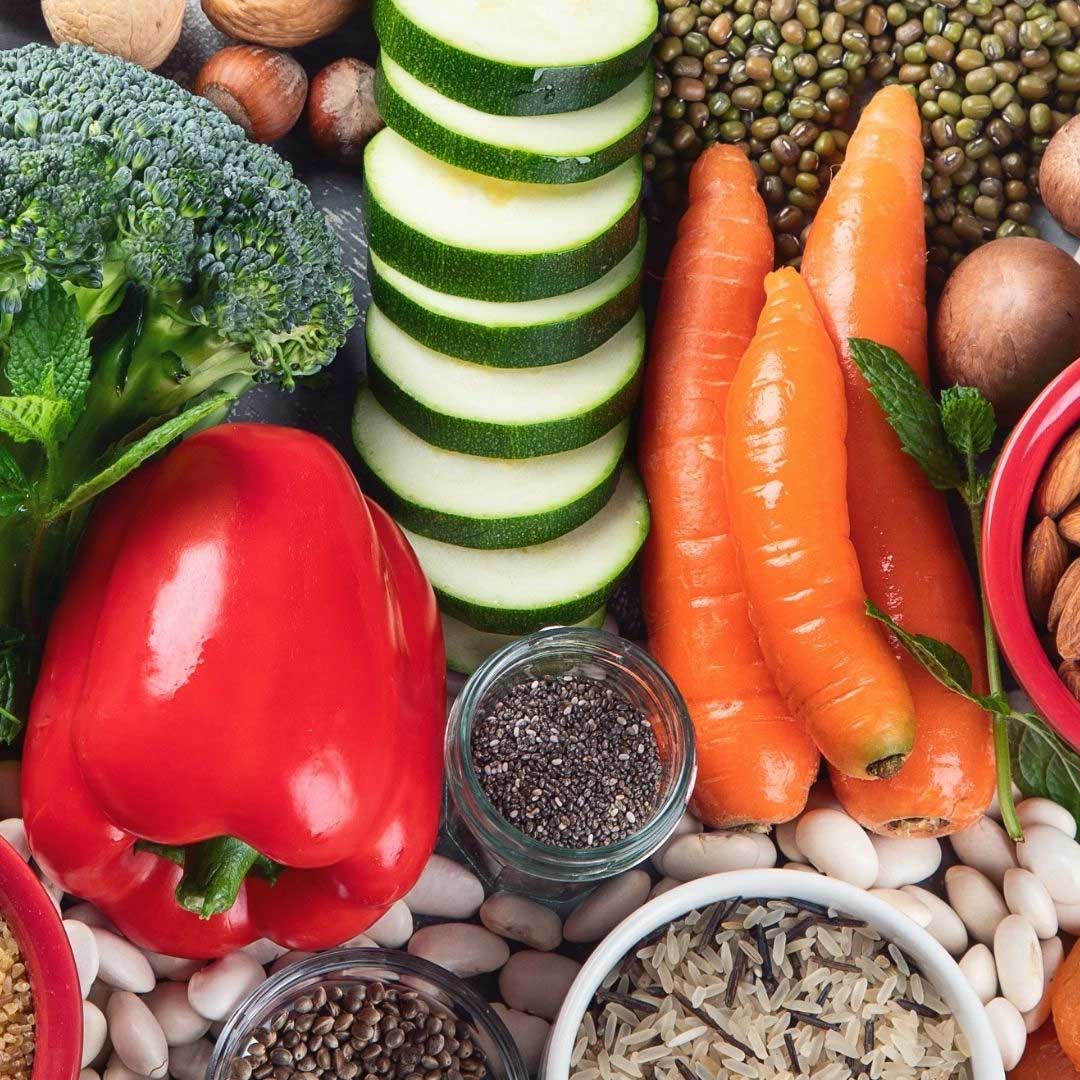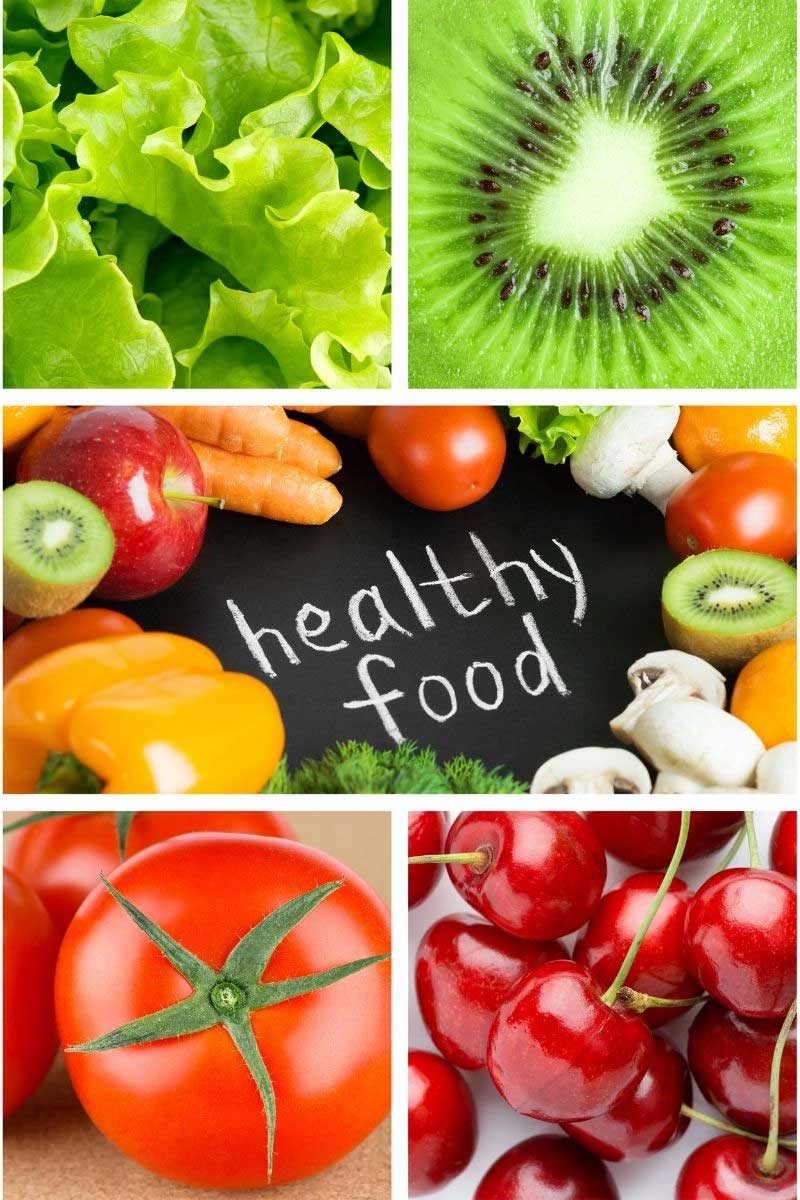Introduction
We should all make plants the foundation, the base, the largest part of our diets because plant-based is healthier! Think about the power of plants— almost every animal on this earth consumes plants to be healthy — they wouldn’t be doing this if it were bad for them. Plants usually cost less than animal products, and they pack in nutrients that animals eat for better health.
I’m not saying we should all be vegetarian but making plants the base of your diet can have a positive impact on your overall health. You can build your base with plants and then accessorize with animal products to get some of the flavors and textures you seek.
Your body has an inflammatory system, and when it runs better, so do you. The foods you choose as well as those you consume less of and avoid help promote a healthy inflammatory response.
Too often plants are given the title of “Anti-Inflammatory”. However, this is flawed thinking! Because what you do to a plant can make it at best, a contributor to a healthy inflammatory response, and at worst, a pro-inflammatory trigger! How can this be, you ask? Well if you douse that plant in sugar or highly process it, it’s gonna promote inflammation!
So how can you invoke the magical powers of plants and how can these powers be released… Read on to find out!

The Power of Plants
Every year there’s a new list of the top 15 Anti-Inflammatory Foods on Google or floating around somewhere on social media. However, you don’t want to focus on this!
You want to focus on the fact that plants overall have compounds and capabilities (with phytonutrients, fiber, oils, or amino acids that they contain) that help your body produce a healthy inflammatory response. In terms of everything from a plant standpoint, you don’t want to identify certain foods but the entire category of plants as anti-inflammatory.
As long as it’s a quality plant, they are all part of the puzzle. This is the over-arching pillar that’s truly the most important when it comes to a plant-based diet.
When we genetically modify them as seeds (like to prevent them from turning brown when cut (how ‘bout them GMO apples ), what we’re actually doing is changing that plant, which changes every part of how that plant interacts in its environment and thus, how it impacts our health. Read labels to make sure your animal-friendly food choice isn’t a GMO-laden surprise for you.
The big question to ask yourself to ensure you’re getting good quality plants is this: Am I eating this in the form that is closest to how it is in nature? If the answer is yes, you’re likely good to go.

The Quality of Plant Oils Matters
One thing to be aware of is the quality of the plant oils you use. Plant oils have the ability to promote and protect, but we also need to protect them.
Olive, avocado, walnut, hemp, peanut, safflower, sunflower, and so many other oils add flavor and healthy fats. Fats go bad easily so buy/refill them in dark bottles and store them away from light & heat.
What types of plant oils are you using and how are they being stored?
Are you storing them in a dark container to block light and reduce oxidation? We need to be more aware of how healthy fats are stored so they maintain their health properties.

The Importance of Plant Synergy
Plant compounds work synergistically, or collaboratively like a team. And this is important because too often we see compounds isolated from plants (ie: isolation of Omega-3’s to only DHA and EPA in supplements), which excludes all the other beneficial elements that the whole food provides.
Some super-healthy plant-based staples provide most of your food groups in one fell swoop. Take hummus, for example. The chickpeas qualify as a carb and protein, and the tahini and olive oil mean you’re getting your healthy fat.
That means the ideal dip for hummus is a non-starchy vegetable, such as celery sticks or broccoli florets—not another carbohydrate, like pretzels or rice chips.
Likewise, if you use hemp seeds to make a pesto or substitute them in place of croutons on a salad, those hemp seeds will provide proteins, fats, and other nutrients that help promote a healthy inflammatory response.
Hemp seeds add instant nutrient balance to starchy-veggie soups. Next time you’re having a carb-heavy butternut squash, carrot, or lentil-based soup, sprinkle on some hemp seeds, which offer protein, healthy fat, and fiber to nutrient-balance your bowl.
If you consume hemp protein isolate or an ALA supplement from hemp you may get some benefits but not all of them. Same for organic tofu versus fat-free soy milk or soy protein isolate.

Variety Matters in a Plant Based Diet
Your total nutrition will help to promote (or not) a healthy inflammatory response. A plant-based diet can be so powerful in promoting a healthy immune response.
Recent long-term research in both peri/menopausal and young women (18-30) has indicated that eating a variety of plants (while reducing high-fat meats and poor quality plant products) reduced the occurrence of heart disease and lowered LDL cholesterol.
Finally, plants come in many forms. If you’re not a fan of certain ones, try various forms and find one that works better for your goals. Try sautéing, baking, roasting, and even dehydrating your go-to vegetables.
In fact, cooking often optimizes certain nutrients, making them more readily available for digestion and absorption in the body. Plus, it also changes the taste—often for the better! Don’t get stuck in a raw veggie rut!
How you cook your vegetables can make a difference in the nutrients that are available for your body to absorb. If you boil the heck out of Brussels sprouts, a lot of the nutrients are left behind — and that’s definitely not better for you!
Conclusion
Better nutrition helps you get and stay healthy. It means “giving your body what it needs to run better, without giving it ingredients that irritate, overwhelm, and disrupt those efforts”.
When the body is fighting disease or looking to build and support the growth of a new life, the benefits of eating plant-based becomes even more critical. The body wants those extra nutrients, like antioxidants, to help it clean up inside and wage an effective battle or fully nurture the new life growing within.
Are plants the basis of your diet or do you need to work on this just a bit? Leave a comment and let me know. If you need a little help, ask me about my “Plant-Based Nutrition Guide” to get you on the right track!
***Disclaimer: This post is for informational purposes only and should not be construed as medical advice***

